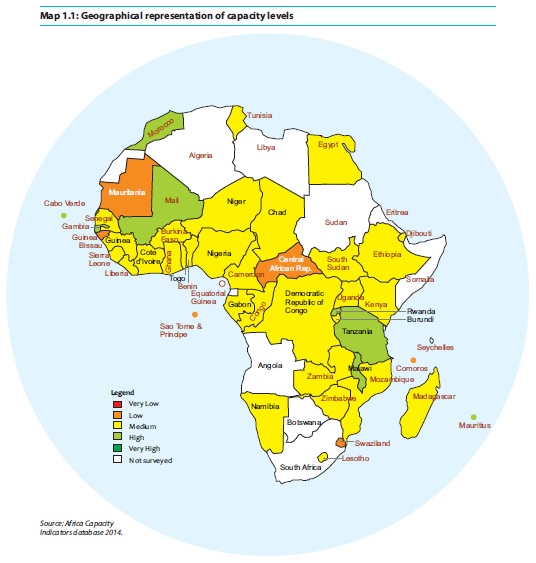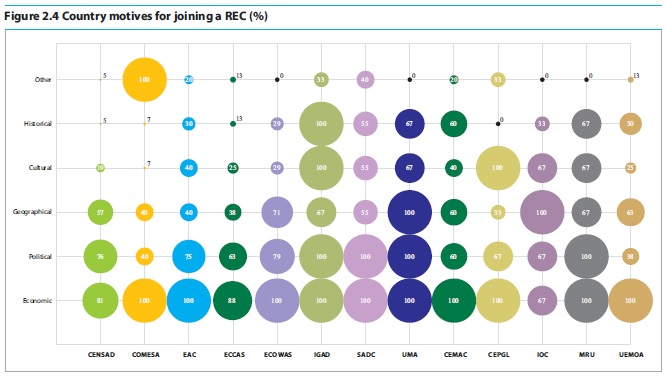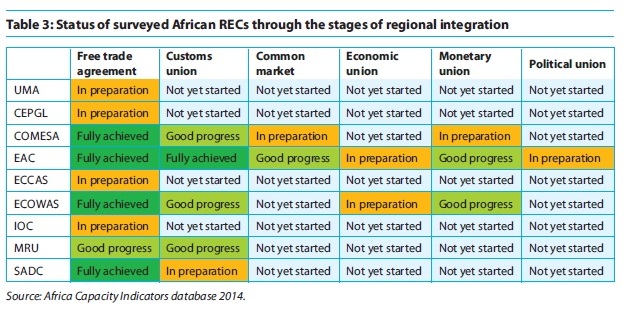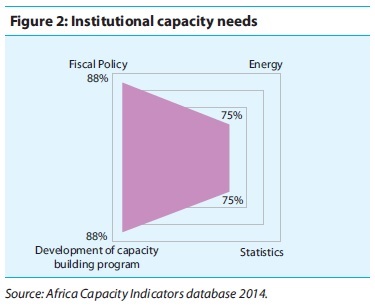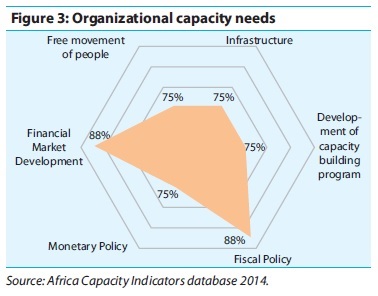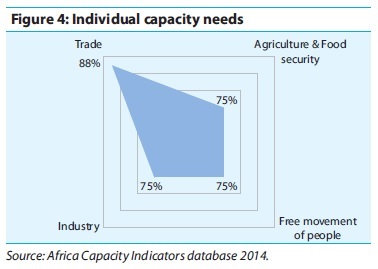News
Africa Capacity Report 2014: Capacity Imperatives for Regional Integration in Africa

The 2014 Africa Capacity Report takes a fresh look at an old issue: regional integration, which attracted the attention and interest of leaders and development specialists and partners even before the independence of African countries. For at least three reasons, this is a good time for the African Capacity Building Foundation to be thinking about the capacity imperatives for regional integration.
First, regional integration has been extensively debated in the literature. But relatively few works have paid attention to the capacity dimension. The Africa Capacity Report 2014 is therefore meant to serve as a guide to African governments, development partners, regional economic communities (RECs) and continental bodies, nonstate actors, and civil society organizations on strengthening their capacities for successful regional integration. It also contributes to the ongoing timely debate, and the broader literature on regional integration, filling gaps related to the capacity imperatives for regional integration in Africa.
Second, regional integration is a relentless reality of modern times, and it is even more important for Africa, as featured in the continental Agenda 2063. Besides being a priority and subject of discussions among the continent’s development partners and elites, regional integration is considered as a key driver and the way forward for the structural transformation of African economies. The strong commitment to regional integration and the increasing recognition that collaborative actions and regional approaches are critical to achieving Africa’s development goals suggest a different angle for attending to the imperatives for capacity development.
Third is the necessity to have empirically based evidence underlying the policy recommendations and way forward for Africa’s regional integration. For regional integration to provide the expected benefits in trade, peace, security, investment, and above all economic transformation and sustainable development, African countries, the RECs and continental bodies need to understand the key issues and constraints, formulate and coordinate appropriate strategies and policies, and implement successfully the different regional development projects and plans.
The 2014 report identifies the many challenges of regional integration: overlapping memberships, limited financing, uneven commitments, and slow implementation. Experience from the European Union (EU) shows that although African RECs have treaties that let the countries dominate the relationship with RECs, member states lack the minimum enforcement capacity that the EU has. Further, the RECs that we surveyed have expressed their capacity needs as related to the required number of staff, the mobilization of resources, the coordination of activities, the conduct of research, the sharing of knowledge, and the monitoring and evaluation of projects, programs, and plans.
The report’s results provide a compelling case to support the efforts of capacity building throughout the continent. The surveyed RECs have indicated that they need institutional capacity building in fiscal policy, energy, and statistics. They also need organizational capacity building in fiscal policy, financial market development, infrastructure, and free movement of people. And they need individual capacity building in trade, agriculture, food security, industry, and the free movement of people.
Clearly, capacity is needed to drive the integration process in Africa and to support the creation of the African Economic Community. More pressing is building the capacity to implement regional projects and programs, to coordinate and harmonize country and REC strategies and programs, and to conduct research and share knowledge.
» Download the Africa Capacity Report 2014 (5.45 MB).
Infographics
Country coverage in 2014
The ACR aims ultimately to target all African countries. The inaugural ACR (2011) covered 34 countries, 2012’s ACR 42 and 2013 and 2014’s ACR 44 (The figure of 44 in 2013 and 2014 masks a change in composition: Angola, Botswana, and South Africa were surveyed in 2013 but not in 2014, and vice versa for Comoros, Egypt, and South Sudan).
Country motives for joining RECs
The Indian Ocean Commission (IOC) aside, countries joined RECs mainly for economic reasons, which calls for interventions focusing on that dimension.
Major areas of capacity and other needs for the RECs
The RECs are at different stages of integration. Among the surveyed RECs, EAC has shown the best performance over the stages of regional integration. It has fully achieved a free trade agreement and customs union, made good progress on a common market and monetary union, and is preparing for economic and political union. ECOWAS, too, has made relatively good progress, especially on its free trade agreement, customs union, and monetary union. RECs such as UMA and the ECCAS, though active on the ground, are only just preparing for a free trade agreement and have yet to start any of the other stages.
Capacity priorities for RECs


